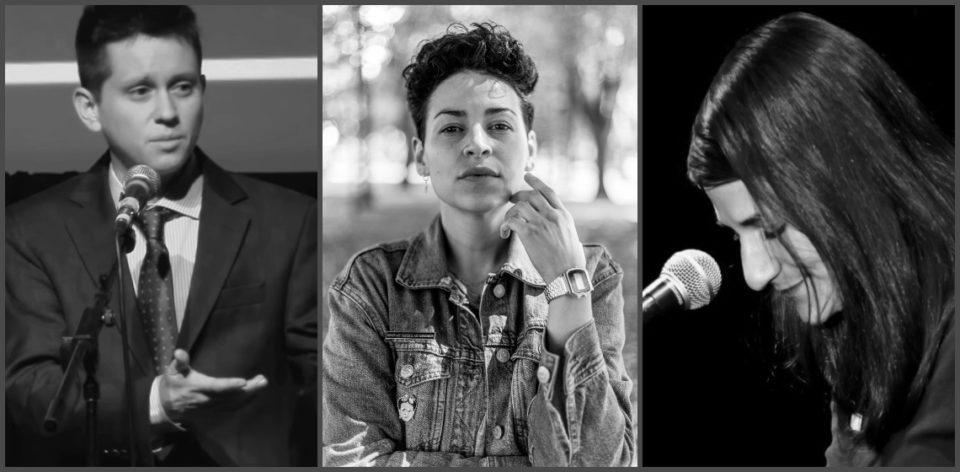Poetry has been with us since we invented timing words to rhythm and expressing our feelings in a shorter, more personal way. We can imagine how much the form of poetry has changed since then. Today it’s no longer necessary for contemporary poems to follow the strict rules dictated by earlier eras. If we’re talking about poems, let’s not think that we should only end the verses in rhymes or that we should be arrange them in uniform lines.
Poetry really is everyone’s. What’s more, it can become a tool for those young people who can no longer identify with the usual themes of classical poetry. As such, slam poetry, also known as spoken word poetry, which belongs to postmodern literature, satisfies the needs of those interested in topics related to social, political, and mental health, as well as deveotees of classical poetry.
In Europe it appeared as an independent genre in the 1980s, and in Hungary the first slam poetry event Budapest Slam was organized in 2006. It started to gain popularity slowly but surely in the 2010s. Among local slam poets Süveg Márk (Saiid) and Kemény Zsófi are the two most famous.
You could rightly ask if they write poems which deal with current problems, then why are there so few LGBTQ+ themes on the local stage? On occasion, we can hear verses related to these themes (For example, at the opening of Budapest Pride in 2019 in a performance by NoÁr, who although not queer, touched on important topics; you can watch it again here .), but this is a neglible number compared to what would be needed. We probably still have to wait for our poets to be able to come out safely, but until then, let’s look at a few foreign examples.
Joanna Hoffman
Usually, slam poets perform poems written as if speaking to someone in the second or third person (to “you” or “he/she/they”). Verses are often emphasised with intense gestures or raised tone. It’s not surprising since they are speaking about their own experiences.
Joanna Hoffman: An excerpt from “Pride”
“So when my straight friend asks me why there is no straight pride parade
I tell her you can't be proud of something you've never had to fight for.
This is for every wedding I watched from the sidelines
Every fairytale with its stipulations.
Every it's a choice,
It's a phase,
You're disgusting.
Every swollen choke of shame.
I learned to coat my throat with every gay kid who ever believed nothing would ever make this better
Because home might break the parts of you
That make you who you're supposed to be.”
Denice Frohman
Denice Frohman’s lyrics at first seem more like a mixture of stand-up and debate rather than poetry, but during slam sessions performers are often carried away by their own experiences and memories (often shouting their poems), which is why this way of performing isn’t surprising either:
Denice Frohman: Dear Straight People!
“Dear straight people
You’re the reason we stay in the closet.
You’re the reason we even have a closet,
I don’t like closets
But you’ve made the living room an unshared space
And now I’m feeling like a guest in my own house.
Dear straight people
Sexuality and gender: two different things,
Combined in many different ways,
If you mismatch your socks you’ll understand.”
Ethan Smith
Lastly, here’s an example of slam written in the tone of personal letters which trans Ethan Smith wrote to his past self Emily:
Ethan Smith: A letter to a girl I used to be
“You are not here
Most of my friends have never heard your name until now
I've been trying to write this letter for 6 months
I still can't decide if it should be an apology or not
But now you will never hear "Emily Smith" announced at a college graduation,
Get married, give birth”
You don’t remember poems like this from your literature class either, do you? We hope that the time will when slam (and contemporary poetry in general) crawls into school materials too. But until then: go Hungarian queer slammers, spread your wings!
Translated by Amy Soto

